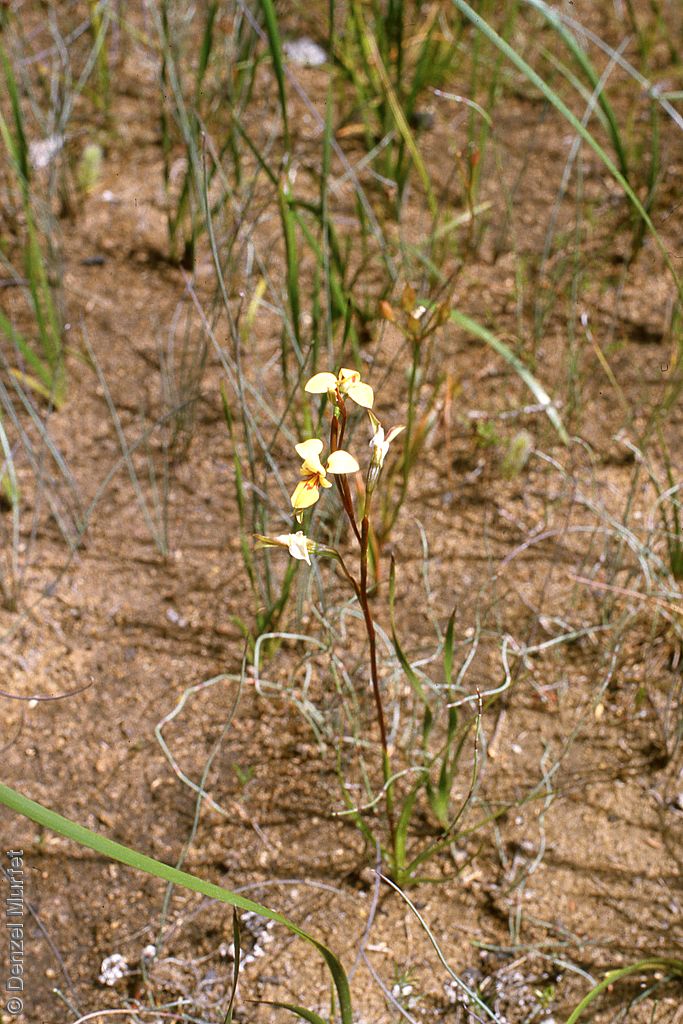
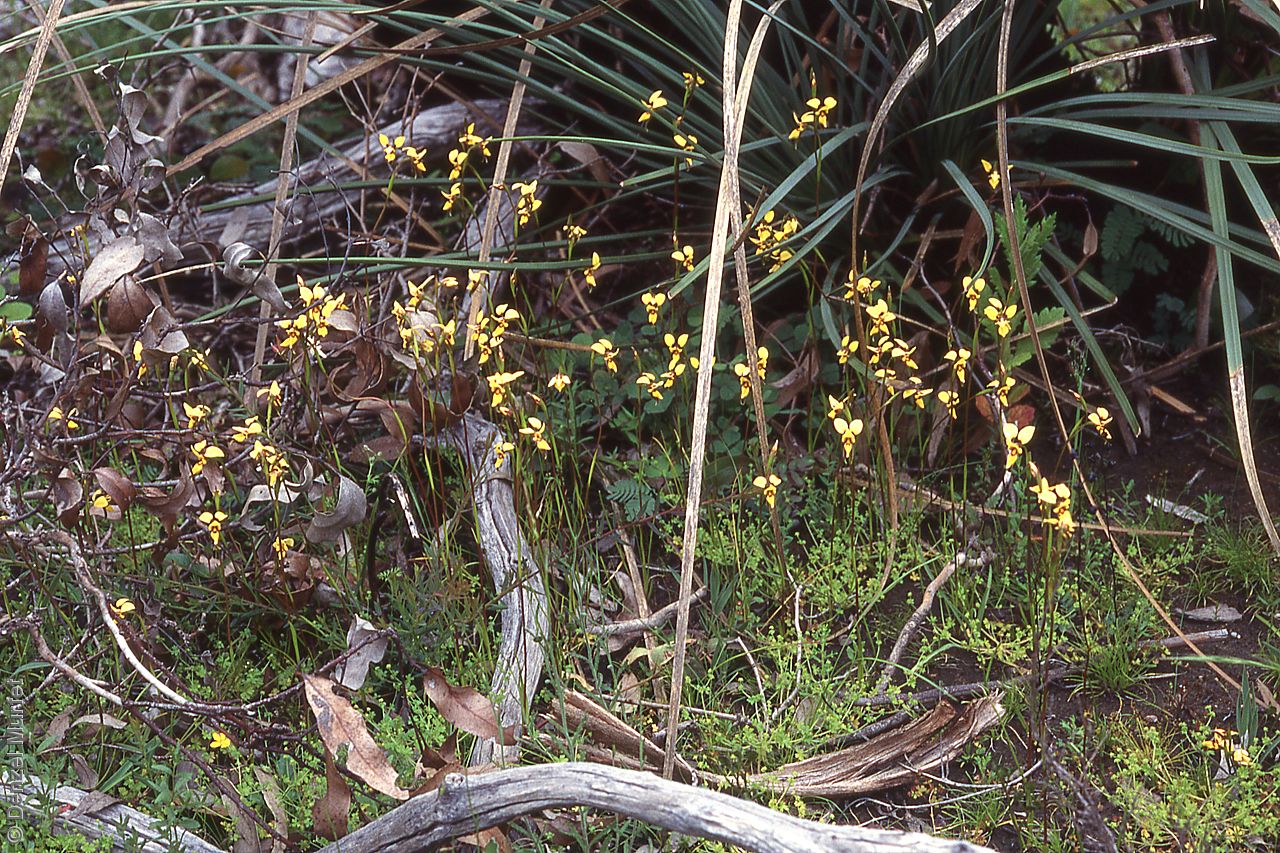

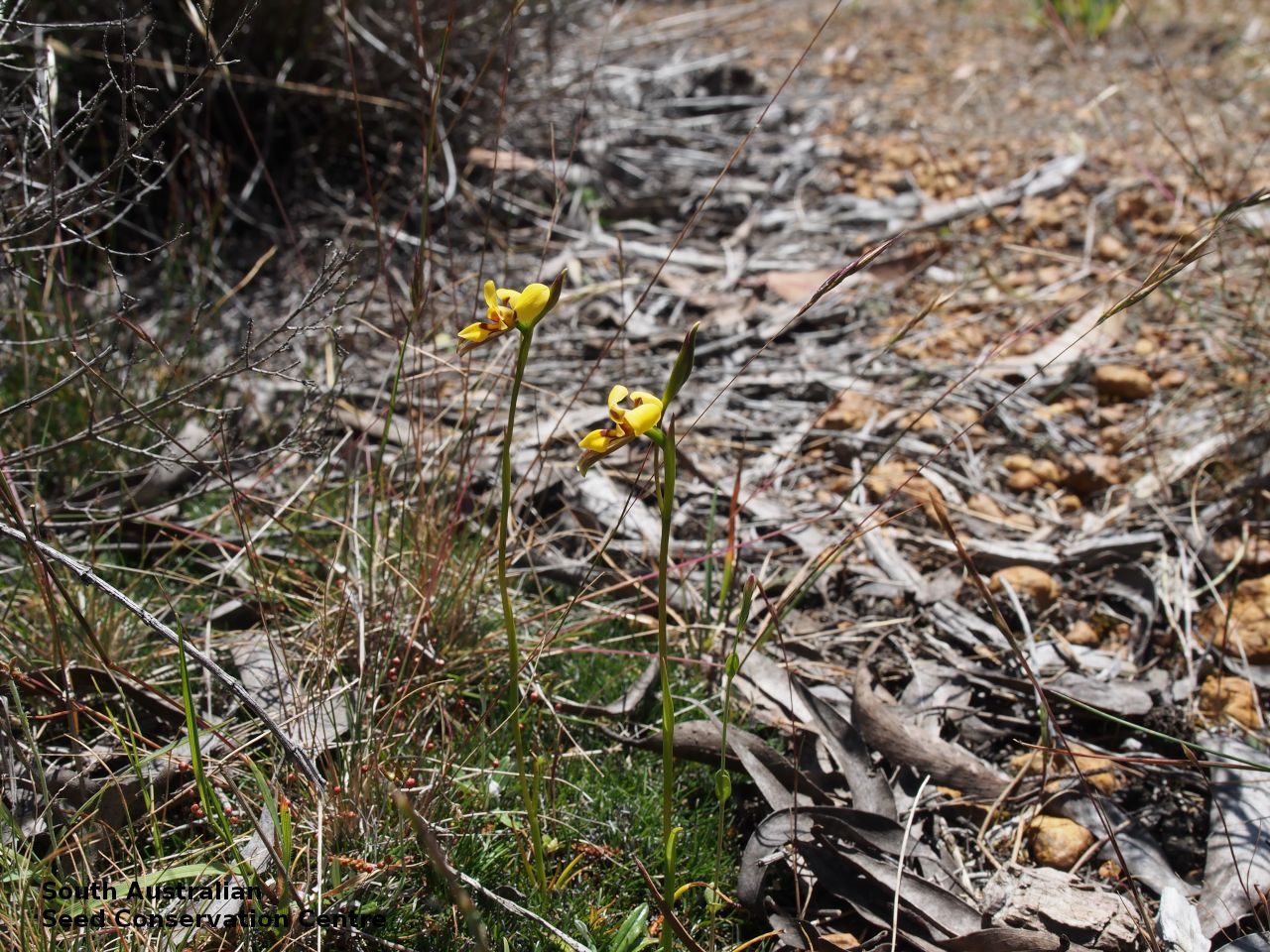
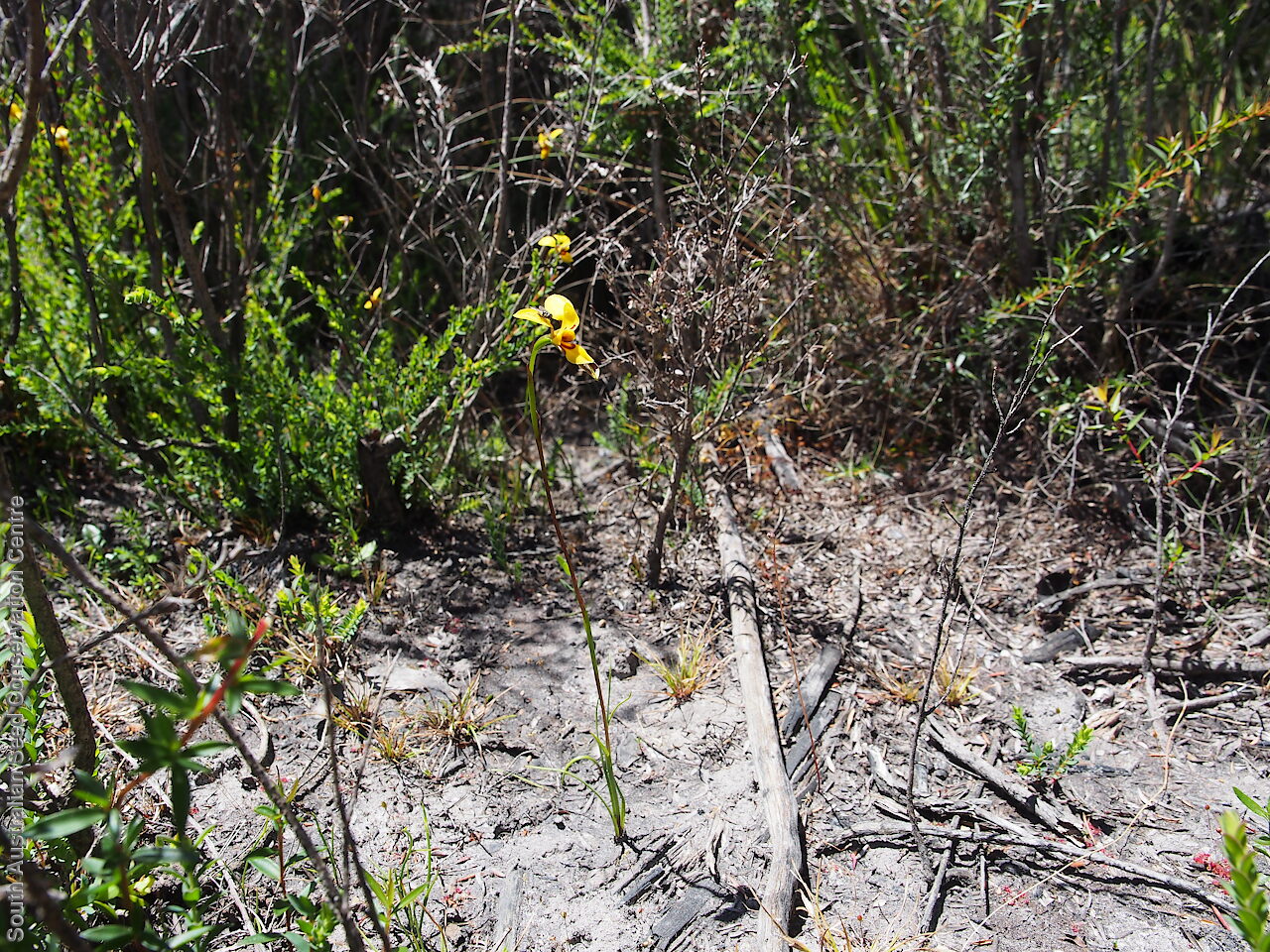
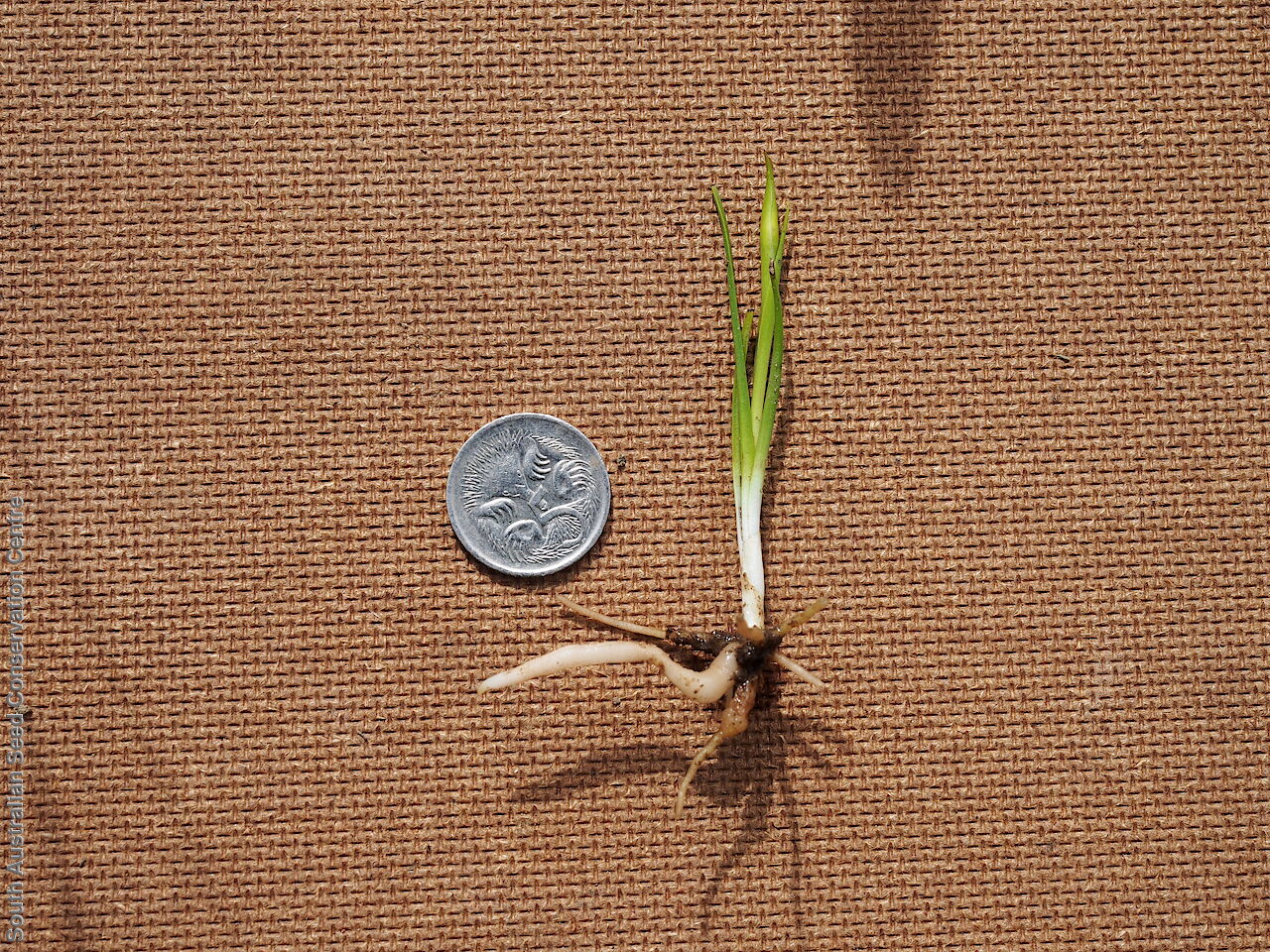
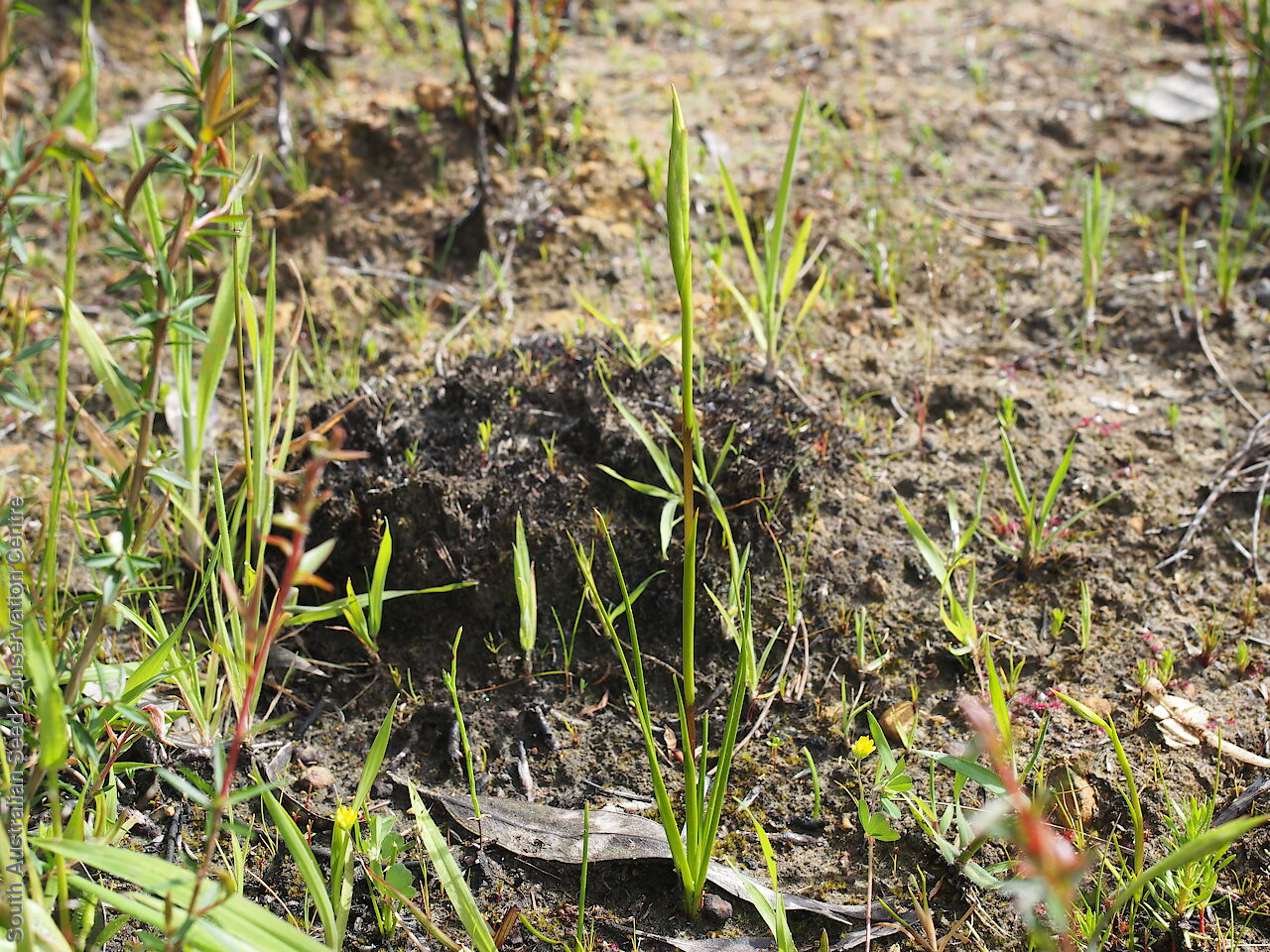
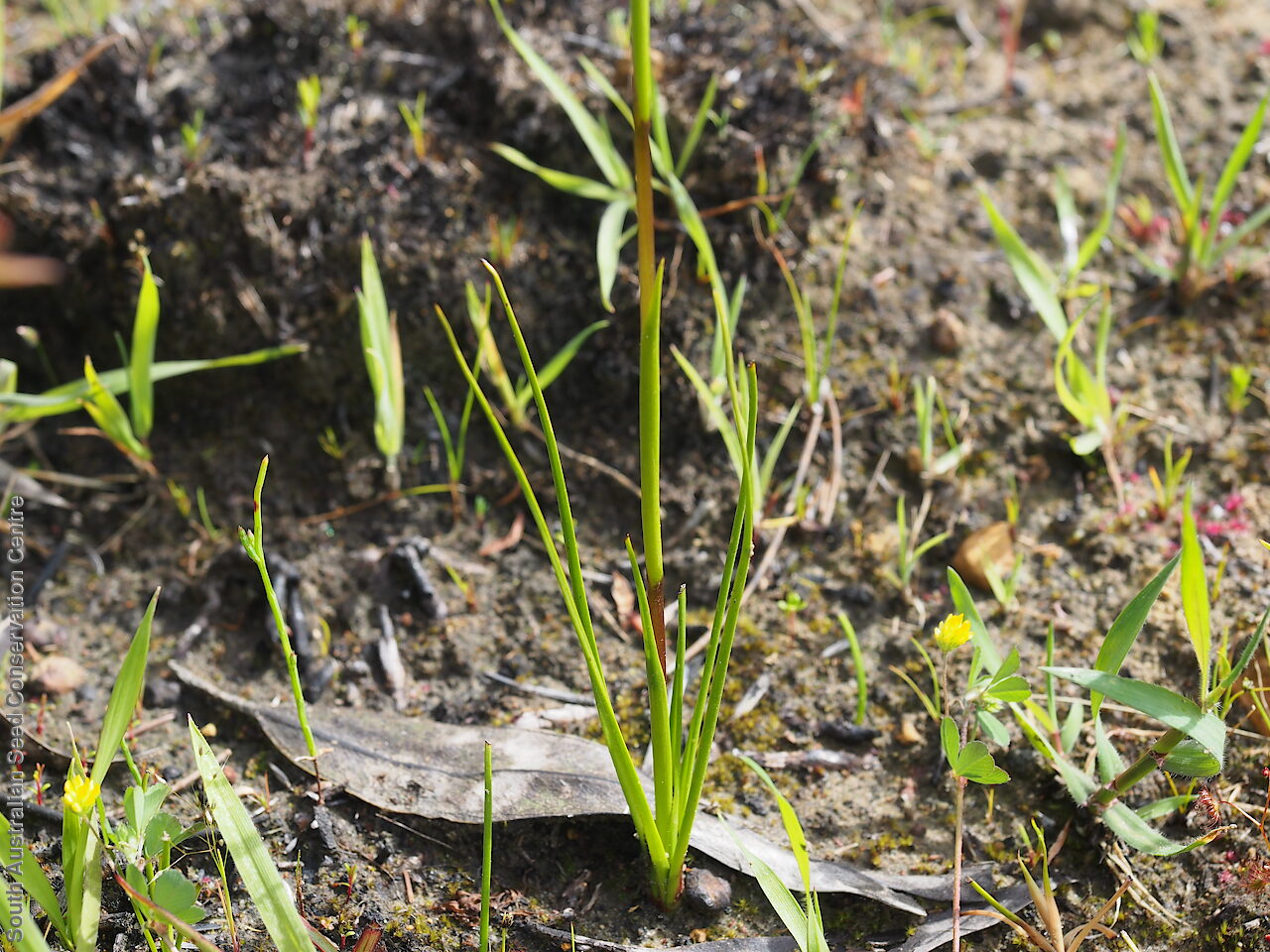
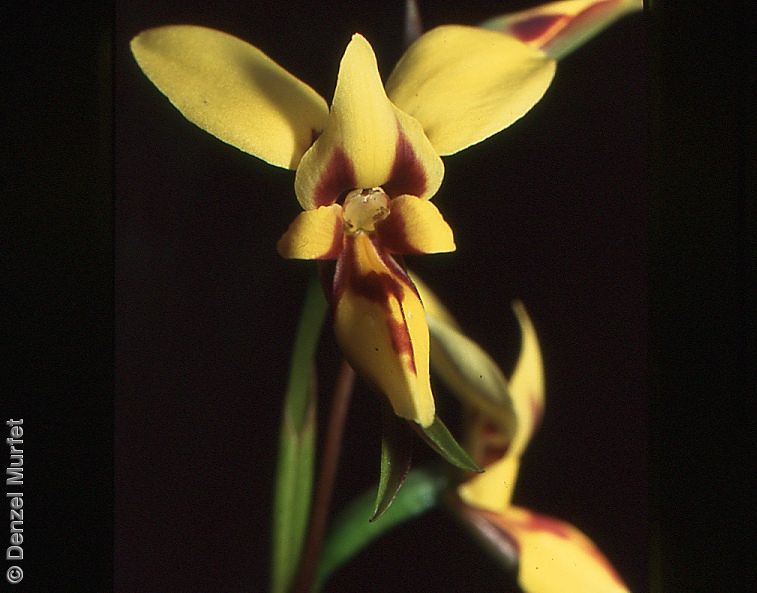

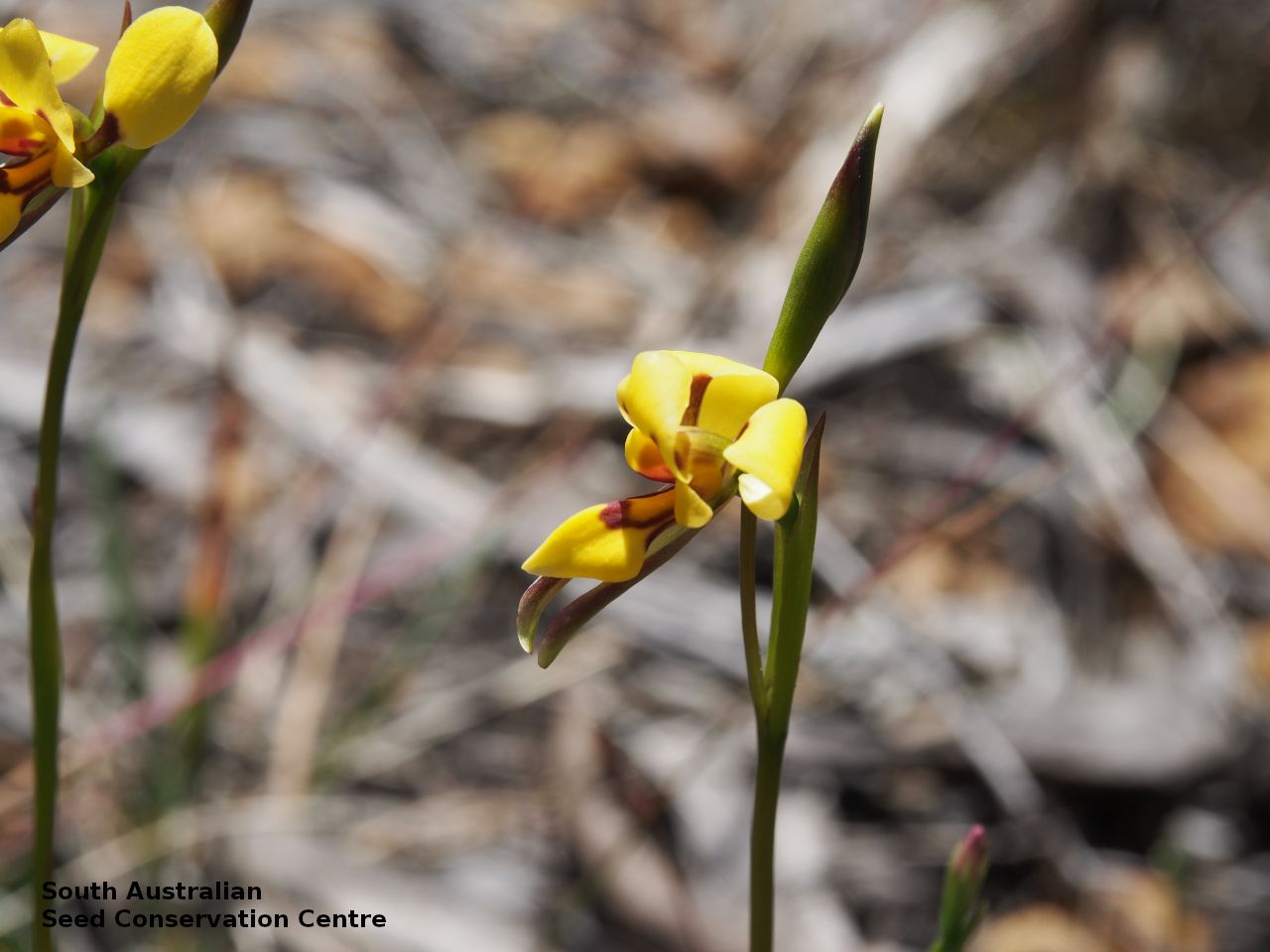
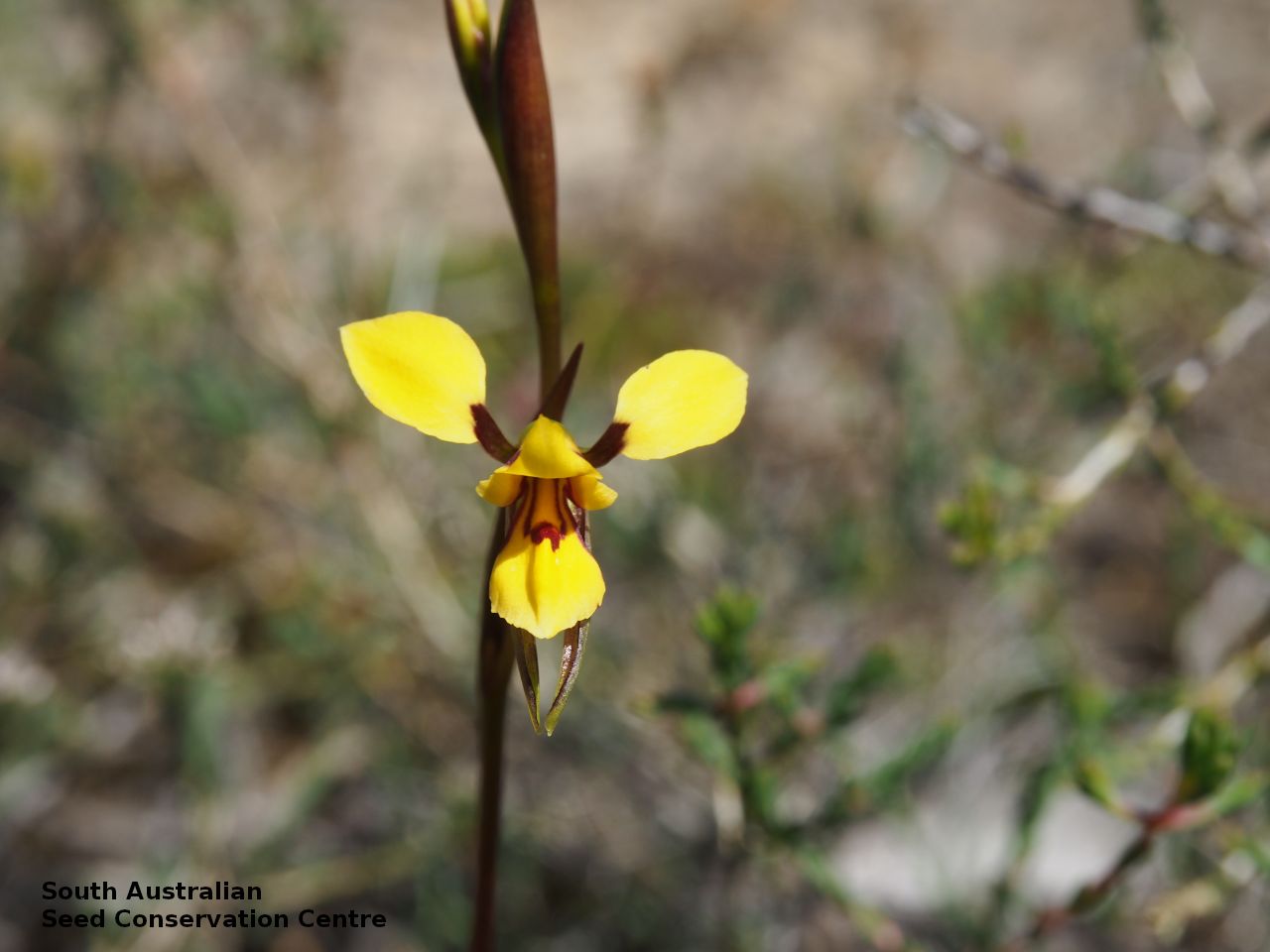

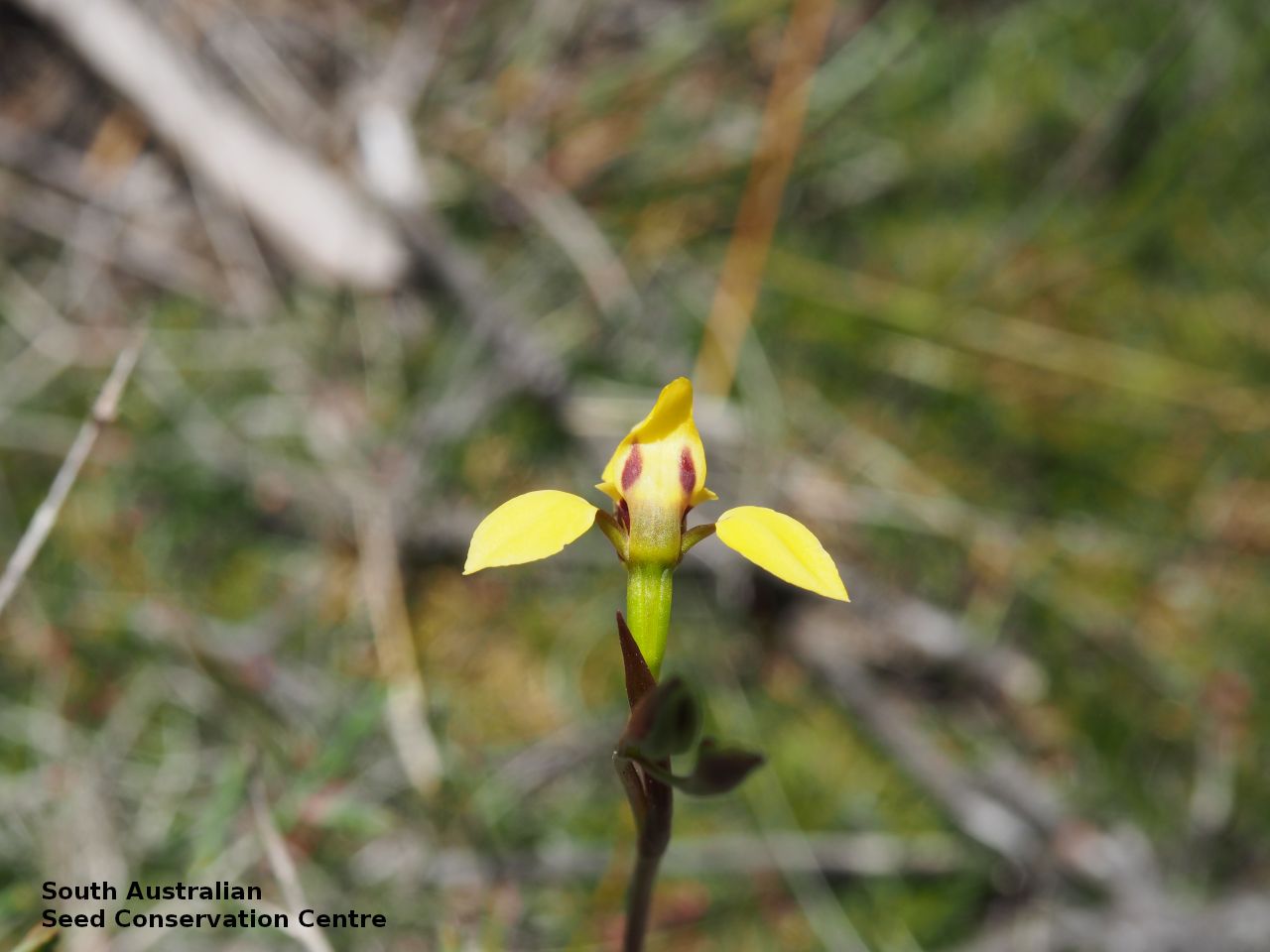
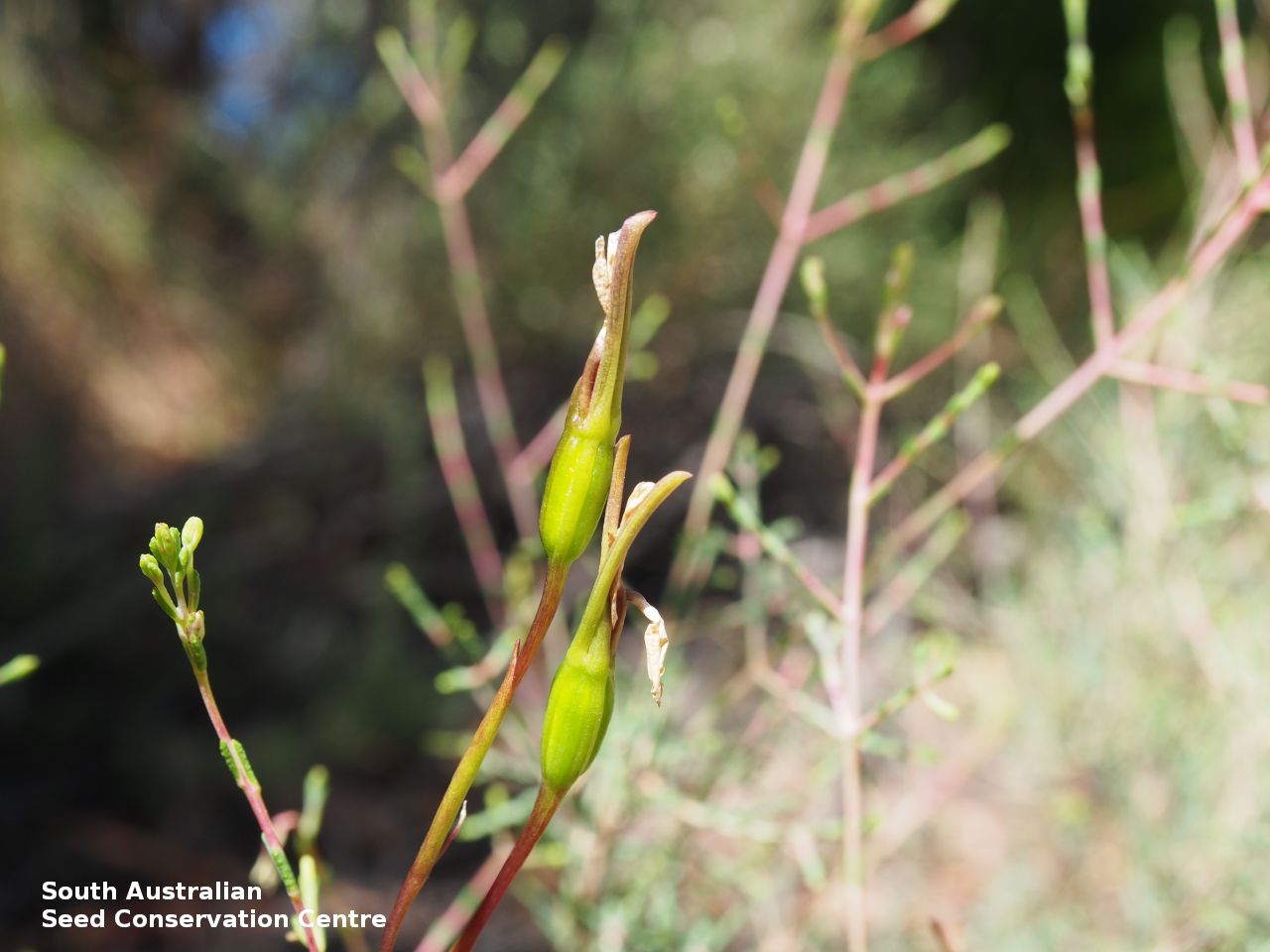
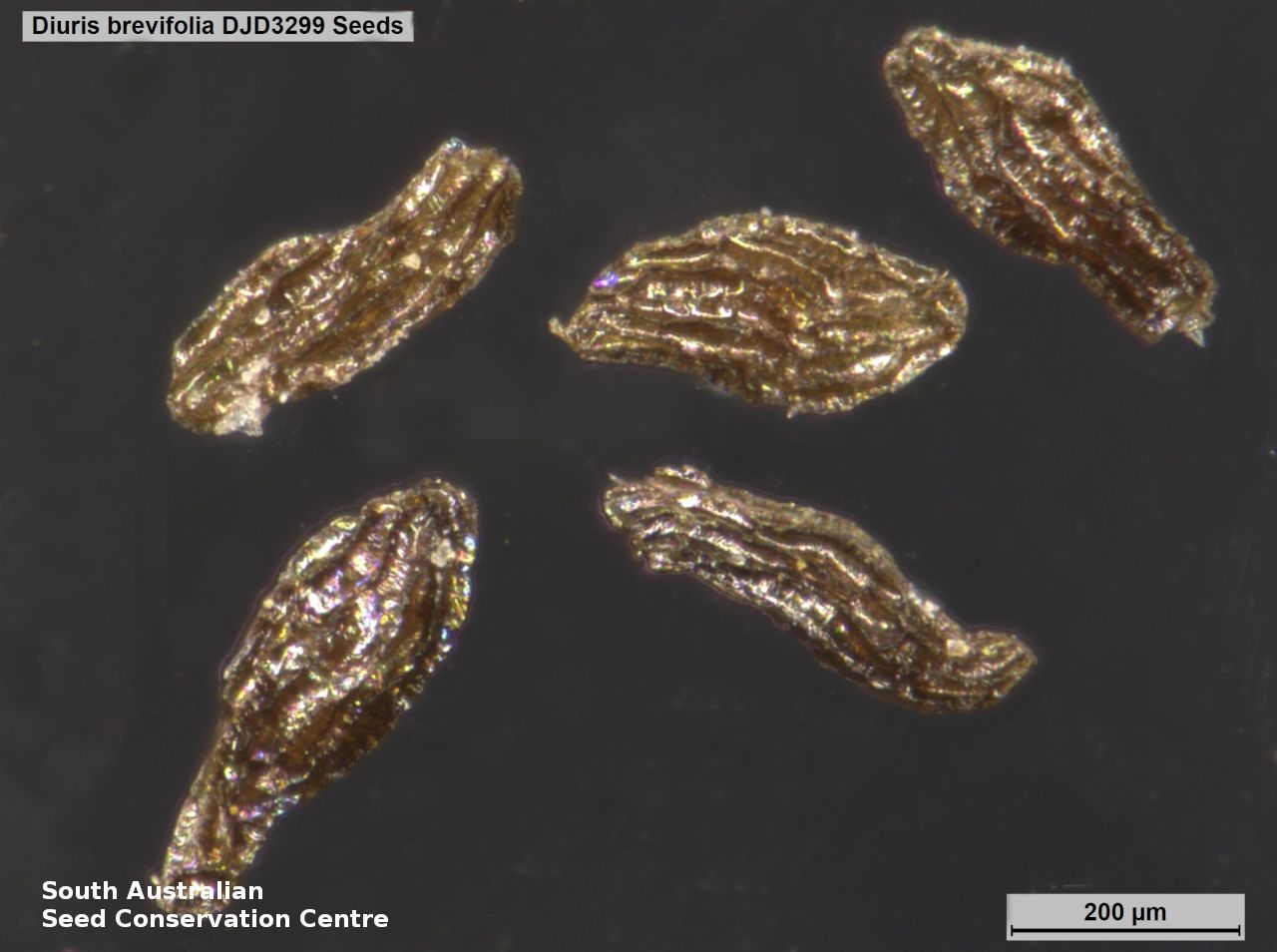

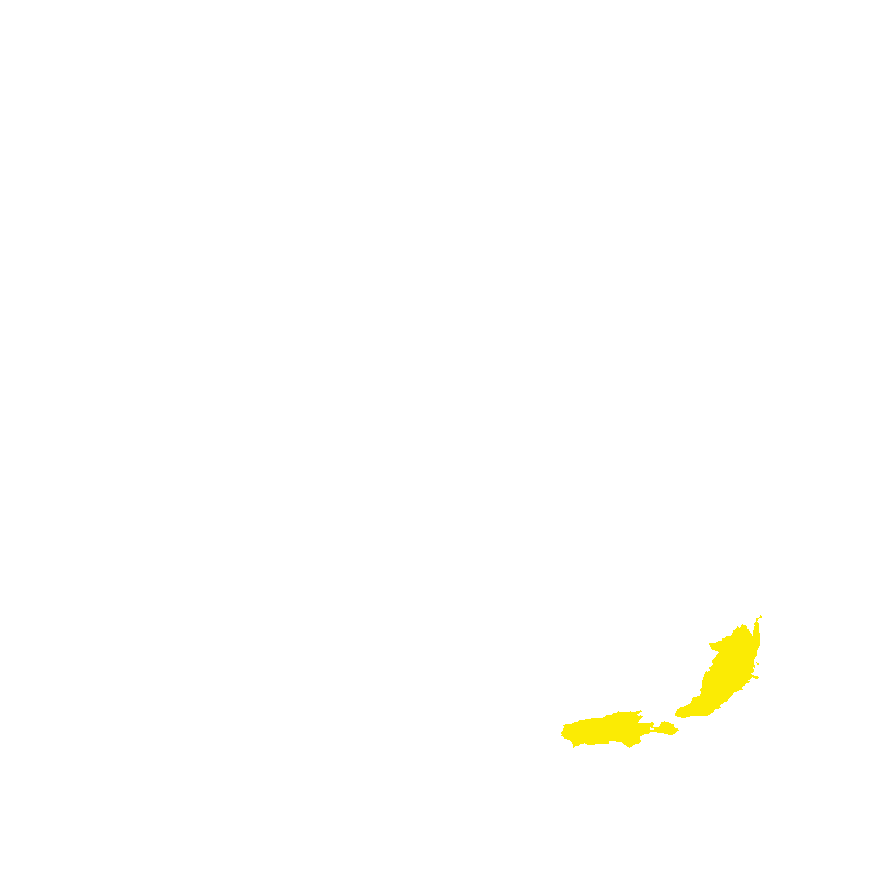
Botanical art
Prior names
Diuris sulphurea var. brevifolia
Diuris emarginata
Diuris sulphurea ssp. brevifolia, nom.inval. (in error)
Common names
Short-leaf Donkey-orchid
Late Donkey-orchid
Etymology
Diuris from the Greek 'dis' meaning double and 'oura' meaning a tail; referring to the drooping lateral sepals resembling tails, on some species. Brevifolia from the Latin 'brevis' meaning short and 'folium' meaning a leaf, referring to the species short and twisted leaves.
Distribution and status
Endemic to South Australia and found on Kangaroo island and southern Mount Lofty Ranges growing on the edges of ephemeral swamps, river flats and valley and ridge slopes which are prone to waterlogging, in dense shrubland on moist to wet soils. Native. Very rare in South Australia.
Herbarium regions: Southern Lofty, Kangaroo Island, Green Adelaide
NRM regions: Adelaide and Mount Lofty Ranges, Kangaroo Island
AVH map: SA distribution map (external link)
Plant description
Terrestrial orchid to 40 cm high in flower. Leaves two to eight, short, narrow and twisted in an erect tuft. Inflorescence at the end of a slender, almost wiry stem with two to five, large, buttercup yellow flowers with a few brown markings. Dorsal sepal to 11 mm long, recurved, with a dark-brown spot on each side of the lower surface near the base. Lateral sepals to 23 mm long, parallel or slightly recurved, green or green and brown. Petals to 14 mm long, on a brown stalk to 3 mm long, spreading; lamina elliptical, yellow. Labellum sessile, 3-lobed, trapezoid, yellow; at least as long as the dorsal sepal and usually longer. Flowering between late October and December. Fruits are brown papery ellipsoid capsule. Seeds are very small brown ellipsoid seed with a translucent brown mesh-like covering.
Seed collection and propagation
Collect seeds between November and January. Collect plump capsules as they start to dry and turn brown. Pods will split and release the seeds quickly and will require monitoring. To increase the chances of collecting mature pods, it is recommended that a small breathable bag (ie. Organza bags) be used to enclose the developing capsules. Place the capsules in a container that will hold fine seeds and leave to dry for a few weeks or until the capsules split. Then carefully hold the capsule and tap it gently to release the seeds. Store the seeds with a desiccant such as dried silica beads or dry rice, in an air tight container in a cool and dry place, refrigerator or in liquid nitrogen.
Fire response
Obligate re-spouter and re-seeder.
Longevity: >20 years
Time to flowering: 2 to 3 years
Recovery work
In 2020-2021 this species was assessed post-fire in 1 year after the 2020 bushfires. A total of 966,00 seeds have been collected & banked for 6 population that occurred within the 2020 fire scar. This project work banking multiple provenance collections and investigating symbiotic in-vitro propagation for future recovery work was supported by the John T Reid Foundation. Fire assessments of multiple populations and seed testing was undertaken with funding awarded under Greening Australia's Project Phoenix.
| Location | No. of seeds (weight grams) | Number of plants | Date collected | Collection number Collection location | Date stored | % Viability | Storage temperature |
|---|---|---|---|---|---|---|---|
| BGA | 45,000 (0.041 g) | 22 pods | 12-Jan-2011 | J. Quarmby Southern Lofty | 1-Nov-2016 | 55% | -80°C |
| BGA | 110,000 (0.099 g) | 38 pods | 12-Jan-2011 | J. Quarmby Southern Lofty | 1-Nov-2016 | 65% | -80°C |
| BGA | 130,000 (0.122 g) | 44 pods | 12-Jan-2011 | J. Quarmby Southern Lofty | 1-Nov-2016 | 75% | -80°C |
| BGA | 85,000 (0.077 g) | 17 pods | 12-Jan-2011 | J. Quarmby Southern Lofty | 1-Nov-2016 | 70% | -80°C |
| BGA | 1,000 (0.0013 g) | 3-Jan-2017 | OVE3205 Kangaroo Island | 1-Nov-2017 | N/C | -80°C | |
| BGA | 2,000 (0.002 g) | 24-Oct-2015 | B.Overton Kangaroo Island | 1-Nov-2017 | N/C | -80°C | |
| BGA | 280,000 (0.26 g) | 7 | 16-Dec-2015 | DJD3269 Kangaroo Island | 30-Jun-2018 | N/C | -18°C |
| BGA | 21,000 (0.020 g) | 5 | 12-Jan-2021 | DJD3973 Kangaroo Island | 28-Jun-2021 | N/C | -18°C |
| BGA | 66,000 (0.061 g) | 12 | 14-Jan-2021 | Gosse-Ritchie Rd Kangaroo Island | 28-Jun-2021 | N/C | -18°C |
| BGA | 40,000 (0.037 g) | 12 | 15-Jan-2021 | DJD4004 Kangaroo Island | 28-Jun-2021 | N/C | -18°C |
| BGA | 161,000 (0.148 g) | 20+ | 11-Jan-2021 | DJD3919 Kangaroo Island | 28-Jun-2021 | N/C | -18°C |
| BGA | 348,000 (0.320 g) | 13 | 11-Dec-2020 | J.J.Smith Southern Lofty | 28-Jun-2021 | N/C | -18°C, -80°C |
| BGA MSB | 247,100 (0.226 g) 82,900 (0.076 g) | 30+ | 13-Jan-2021 | DJD3987 Kangaroo Island | 28-Jun-2021 | N/C |
Number of plants: This is the number of plants from which the seeds were collected.
Collection location: The Herbarium of South Australia's region name.
% Viability: Percentage of filled healthy seeds determined by a cut test or x-ray.